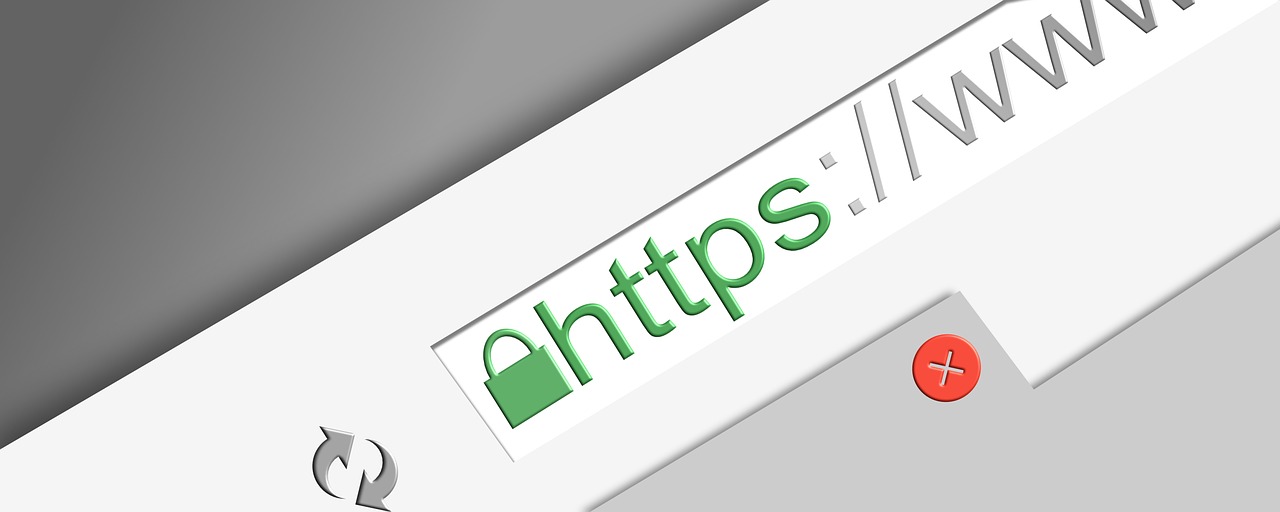Given the steady increase in cyberattacks and malware over the past few decades, it's no secret companies must do their part to safeguard their websites from these malicious attacks.
Turn on the news and you'll routinely see segments about how web administrators have reported losing valuable company data, personally identifiable information, credentials, and credit card numbers. And more often than not, employees and consumers can have their identities compromised, which can negatively impact the reputation of your business.
Here are four ways to better equip yourself and your company with quality website security solutions:
1. Add HTTPS and an SSL Certificate
The first step to creating a secured website for your business is having a secured URL. In particular, your site needs HTTPS protocols and SSL certificates in place to ensure consumers and your proprietary information won't become compromised.
HTTPS is a protocol used to prevent interceptions and interruptions of data while information is being shared. Meantime, SSL, another security protocol, encrypts information to prevent bad actors from reading it while being transferred between the website and your database.
HTTPS and SSL are prerequisites for websites that ask visitors to register, sign-up, or make a transaction of any kind. Both deny data access to those without proper authority.
2. Protect Your Website from Malware
Throughout the U.S., it's estimated that 73% of all small businesses aren't prepared for malware attacks. This is due to not having website malware removal tools in place that detail how to handle such attacks. Moreover, this also showcases how malware attacks are still a prevalent issue despite being one of the oldest threats to website security.
Typically, attackers strike enterprises with low-security websites and no malware removal tools in place to:
-
Set up a back door for future infiltrations.
-
Conduct surveillance on a company without attracting attention.
-
Steal personal data (like credit card numbers, location history, etc.)
But how exactly will you know if your website has been attacked? Some common "symptoms" include freezing of the site, unintended changes in the appearance of web pages, being blacklisted by search engines, and more.
Though sometimes detectable through external website scanning, Malware is mostly hidden well into the systems. This makes the removal of malware for business websites a worthy investment in the short and long term.
3. Use an Advanced Web Application Firewall (WAF)
SQL injection, application vulnerability exploits, and injected code (malware) are the most common major threats to e-commerce businesses. However, well-configured and well-managed web application firewalls protect websites against said attacks.
WAFs also provide a business website with "virtual patching" when a zero-day vulnerability is released. Zero-day vulnerabilities are gaps, misconfigurations, security weaknesses, flaws, or bugs in websites that have gone undetected by web administrators. This protection can buy these administrators enough time to test patches and then update the system on their own time, while the website remains protected.
4. Back Up Your Website
If your website security ever gets compromised, having a good backup solution is crucial to recovering your data. You can back up your data by doing the following:
-
Keeping your website information off-site means not storing your backups on the same server as your website. This is because your backups on your website's server are vulnerable to attacks.
-
Back up your website on a home computer or hard drive. Storing these pages on off-site locations like a hard drive prevents them from hardware failures, hacks, and viruses.
-
Back up your website in the cloud. It makes storing data easy and allows accessing information remotely.
Keep Safeguarding and Upgrading Your Online Presence
Despite your best efforts, you'll need to constantly add new layers of security to combat the increasing threat of cyberattacks in the years to come. Web security is ever-evolving and requires you to make ongoing security upgrades to maintain a healthy online presence for your business.
Are you concerned about web security for your business or other network issues? Then, ultimately, know that having best practices in place will protect your and your customers' online identity and personal information.















